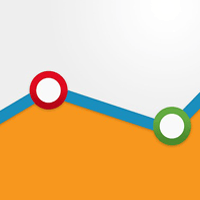Analyzing Google's Unsung Hero"

 Last week, the news came out that the popular Google Analytics platform is currently installed on over 10 million websites worldwide, and according to BuiltWith, that number is actually a lot closer to 15 million.
Last week, the news came out that the popular Google Analytics platform is currently installed on over 10 million websites worldwide, and according to BuiltWith, that number is actually a lot closer to 15 million.
Maybe this doesn't come as a huge shock to most of you (in fact, some had estimated that the number was much higher), but that doesn't change the fact that Google is on top in the world of Web analytics.
The product was referred to as Google's "unsung hero" by the company's CBO, Nikesh Arora, which makes sense, since some of the 'Net's biggest, and smallest, websites leverage the solution. Ultimately, some 56 percent of all sites are using Google Analytics for at least some of their needs.
But does that mean it's actually the best?
Hey, it's free!
Some sources online (of varying degrees of credibility) will gladly tell you that Google Analytics is, at best, a lackluster solution, while others go so far as to proclaim that it will usher in the death of your Web business (uh, not quite). Are these criticisms really justified, though? After all, millions of websites utilize the solution and most of them don't seem to complain too much. Then again, maybe that's because they don't know they should be complaining.
When it comes down to it, there are really two major issues with Google Analytics. The first is that it's free. (Wait, did I just say that?) Of course, everyone likes to pay literally nothing for a tool as competent as Google Analytics, but that also means that a lot of people are going to leverage the solution. With a paid service, users are often going to be more serious, and they're also going to have more influence with regard to petitioning for changes and improvements to the solution.
Think of it like the equivalent of a sports team's training camp: Paid solutions help to weed out the less committed players, leaving a user base that is (mostly) serious about its analytics.
The other, and more detrimental issue with Google Analytics is basically that it's too robust. Okay, I know it probably sounds like I'm just complaining about all of the great things about Google Analytics, but hear me out.
But does it cause inefficiency?
There are, generally speaking, two types of people who use Google Analytics to track website statistics: those who run an entire website by themselves (small business owners) and those who work for a larger organization and are in charge of a specific area of interest. And in a lot of ways, neither of these groups really benefits all that much from using Google Analytics.
See, problems arise because Google Analytics seems to want to be entirely comprehensive, measuring almost everything and reporting on all of it. In theory, this is great, but what usually ends up happening is users are bombarded with scores of statistics and data, many of which aren't directly actionable and, in some cases, are entirely useless.
For some individual website owners, they'll find that most of the measurements provided by the solution will have little to no direct impact on how they can improve their website's performance and user experience, and all of that superfluous information just makes it harder to parse out valuable data. And it's a similar issue for employees of larger enterprises.
When users are segmented into different divisions, each with specific objectives and goals, they're obviously going to be looking for statistics and information that is pertinent to them. For example, someone in charge of a business' social media will probably be interested in looking at referral traffic, but stats like unique visitors or bounce rates will probably have little use for them.
And while on the surface it may not seem like that big of a deal (after all, better too much information than not enough, right?), it can certainly be overwhelming for those tasked with making sense of all that data. An overflow of statistical information can often have an effect that is the opposite of productivity, because when people have too much data to properly manage, and when much if it isn't directly related to the task at hand, it can lead to performance paralysis, leaving Web workers with fields of information and no idea how to even begin making sense of it all.
We all have choices
Now, this doesn't necessarily make Google Analytics a bad solution, because it can provide a plethora of useful information and actionable insights that can help a Web business get ahead, and stay there. And it really can't be beat for the price. The real issue with Google Analytics is that the majority of sites that use it to track their performance simply aren't able to utilize it to its fullest potential, certainly not the way they'd be able to if it were scaled back a bit.
At present, the large amount of data generated by the service could easily lead to an inordinate and inefficient use of time and resources, and that usually doesn't help anyone in the long run. Google Analytics is a very popular service, and for a good reason, but there's a good chance that there's a better solution out there for your Web business.









